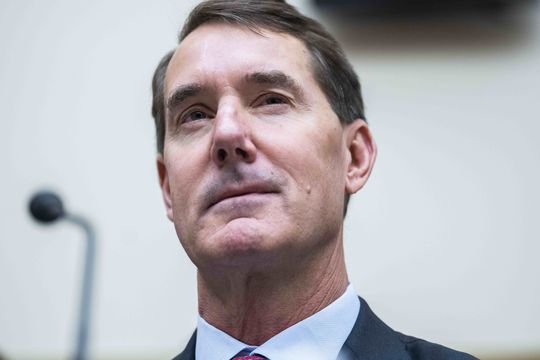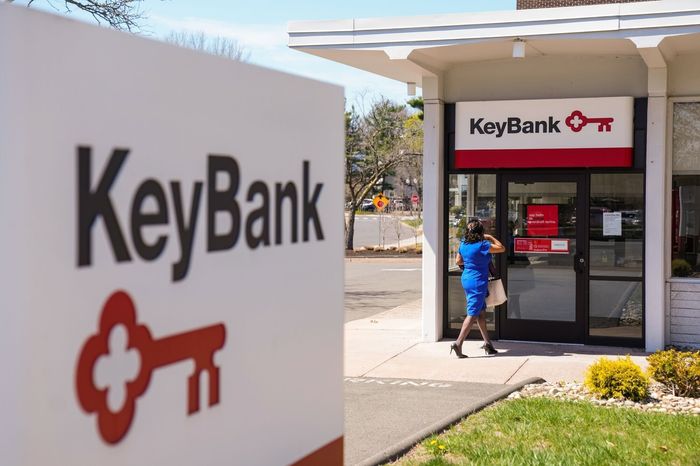While the 2023 banking crisis has come to a close, the road ahead looks uncertain for several regional and community lenders.
Profits took a steep dive at regional banks during the fourth quarter, a trend observed even among the larger institutions, which have historically outperformed their smaller counterparts. KeyCorp witnessed a staggering 90% decrease in net income compared to the previous year, while Citizens Financial Group experienced a decline of around 70%, and PNC Financial Services Group saw a drop of more than 40%. Truist Financial even reported a loss during this period.
Midsize players also faced challenges, with Comerica seeing net income plummet by approximately 90% and Zions Bancorporation experiencing a decline of over 50%.
The Federal Reserve’s plan to ease its aggressive campaign to curb inflation could potentially provide relief to banks after interest rates soared to their highest levels in decades. However, recent uncertainties surrounding potential rate cuts have clouded the outlook.
Chris Gorman, Chief Executive of KeyCorp, acknowledged the uncertainty, stating, “We’re in a very uncertain economic period here. It requires that we run many scenarios as we just figure out the full range of possibilities.”
Even if the Fed decides to cut rates, the impact may not be immediate for banks. Regional banks of all sizes anticipate a decline in net interest income for the full year, emphasizing the significant uncertainty surrounding the rate outlook.
Zach Wasserman, Chief Financial Officer of Huntington Bancshares, highlighted the uncertainty, mentioning that the bank estimates the first rate cut could occur anytime between March and September.
For both large and small banks, catering to yield-hungry depositors has become more costly. However, regional and community banks face greater challenges in absorbing these costs compared to megabanks, whose scale and diversity offer resilience in both favorable and challenging economic climates.
Following a crisis of confidence in early 2023, where depositors fled, resulting in the collapse of three regional lenders in rapid succession, some customers and investors have grown wary of anything but the largest banks.

PNC Financial Chief Executive Bill Demchak said the 2023 bank crisis exacerbated the need for scale. PHOTO: TOM WILLIAMS/ZUMA PRESS
In 2023, JPMorgan, Bank of America, Wells Fargo, and Citigroup, the four largest commercial banks, collectively amassed over $100 billion in earnings, marking an 11% increase compared to the previous year.
PNC Financial’s Chief Executive, Bill Demchak, emphasized how the banking crisis heightened the importance of scale, particularly among corporate clients. He noted that such clients often lack trust in the regulatory environment to safeguard their deposits in smaller banks and require more intricate services like treasury management. Demchak underscored the necessity for regional banks to evolve and offer comparable levels of support to corporate clients during times of crisis, akin to what large banks provide.
At present, regional banks are endeavoring to streamline their operations to regain stability amidst significant deposit and technology expenses, coupled with potentially stringent regulations. In the recent quarter, many regional banks had to allocate substantial sums for special Federal Deposit Insurance Corp. fees following the collapses of Silicon Valley Bank and Signature Bank. Additionally, severance charges for staff reduction and provisions for potential loan losses were commonplace.
Regional banks face notable exposure to commercial real estate, a concern accentuated by the pandemic-induced vacancy of many office spaces. M&T Bancorp reported a significant increase in net charge-offs, driven partly by troubled office loans in key cities like New York City, Boston, and Washington, D.C.
Although the KBW Nasdaq Bank Index and the SPDR S&P Regional Banking ETF have shown modest gains since regional banks commenced reporting last week, many bank stocks remain below their levels from a year ago, owing to sell-offs in early 2023.
Anton Schutz Jr., a senior analyst at Mendon Capital Advisors, expressed optimism, stating, “The lack of consistent bad news is good news,” underscoring the cautious optimism prevailing in the financial services sector.
Bill Smead, Chairman and Chief Investment Officer of Smead Capital Management, disclosed that the firm, valued at $5.5 billion, invested in Fifth Third Bancorp, M&T, and Western Alliance in November. Smead highlighted the resilience of banks despite the challenging conditions, emphasizing their potential for growth amid adversity.

